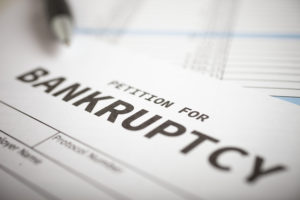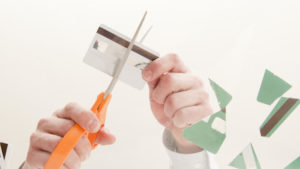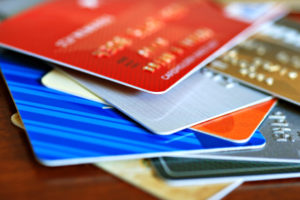How Will Bankruptcy Change Your Life? 7 Ways . . .
Filing for bankruptcy is a major decision. The circumstances that lead to the decision are usually not very pleasant either. Whether it’s the loss of a job, a major medical procedure, or simply overspending, overwhelming debt can be a major stressor on you and your family. And once you’ve filed for bankruptcy, your life will change. Here are seven ways that bankruptcy will change your life, and what you can expect.

The Bad
- Credit Score
According to Experian, one of the major crediting companies in the U.S., filing for bankruptcy drops credit scores by an average of 80 points. However, it could be much more depending on your specific situation. This reduction in credit rating leads to less trust from future creditors, which ultimately leads to you paying higher interest rates and fees. The bankruptcy will also remain on your credit report for 7-10 years. However, all is not lost. With a newfound emphasis on paying your bills on time, you may be able to establish a more favorable credit rating in as little as two years. - Credit Cards
You may be wondering, how or why you’d get a credit card after bankruptcy. As for how, once you file for bankruptcy there’s a good chance you’ll receive new offers for credit cards. While it may seem odd that credit card companies offer credit to people who’ve previously filed for bankruptcy, there are actually creditors who target this high-risk pool. Why? Because they charge higher interest rates and fees, and with these higher fees it’s profitable for them.While the higher rates can seem overwhelming, the opportunity to reestablish your credit rating is actually a plus. If you’re able to consistently pay off your credit card bill each month, it can help improve your credit rating. However, the last thing you want to do is get caught up in more debt. But if you have the money and commitment to paying your bills in full each month, this can be a good option.
- Housing
Once again, we’re going back to your credit rating… Once you’ve filed for bankruptcy, and your credit rating has taken a hit, it can be difficult to find housing. Simply put, you’re seen as a higher risk. So whether you’re trying to rent a new apartment, or applying for a mortgage to buy a new home, expect that you’ll pay higher fees. That may be in the way of a higher interest rate for a new home loan, or a larger deposit for a rental. Yes this is annoying, but it’s important to understand that creditors are merely trying to protect themselves against potentially not being paid. - Employment
It’s true that it is illegal for employers to ask you about your credit during an interview. However, employers can legally run a background and credit check on you. This may not be an issue in some industries, but in others, such as the financial services industry, it’s common practice. If you are subject to a credit check, and you sign a release letting a prospective employer review your credit, your prior bankruptcy and lower credit score may make it difficult to land the position. Right or wrong, some employers view low credit as a sign that you’re not very responsible.
This may all sound overwhelming. But now that we’ve got the negatives out of the way, let’s look at how bankruptcy can have a positive impact on you and your family.
The Good
- Debt eliminated and stress reduced
No longer having to carry burdensome debt is a huge relief. Over the years we’ve had clients tell us that after their debt was eliminated, they slept better, were less anxious, were happier, and their family life improved. And despite some the aforementioned downsides of bankruptcy, life following bankruptcy was significantly better. With both Chapter 7 and Chapter 13 bankruptcy, your unsecured debt will be discharged. This includes credit cards, car payments, and medical bills. (However, it does not include some debt, such as alimony, child support, and student loans.) - No more collection calls or lawsuits
Constant calls from collection agencies can be extremely stressful. If you’ve ever received these calls, you may have noticed that the collection agents can be very harsh, and even threatening. And the longer you owe creditors, the longer the calls go on for.However, the good news is that once you file for bankruptcy, creditors are no longer legally allowed to make such calls. In addition, creditors are no longer able to sue you, or repossess your possessions.
- No one has to know
Many of our clients come to us with lots of embarrassment about their financial situations. And yes, in some instances, this may be justified. We won’t sugarcoat it. But in many cases, especially in cases involving medical bills and job loss, there’s no reason to be embarrassed. Life happens. Still, most of our clients are concerned about privacy. They don’t want people they know to find out about their bankruptcy.The good news is that your finances are your business. Your family, friends, and co-workers don’t need to find out. You can keep it private. The only time your bankruptcy filing would come out would be if you file for a new loan or credit line.
So there you have it, the good and the bad of filing for bankruptcy. Just remember, bankruptcy isn’t forever. After 7-10 years it’s wiped from your record. If you pay your bills on time following your bankruptcy, you’ll be well on your way to reestablishing your credit. And in the meantime, you’ll get a fresh start financially and, in all likelihood, be much happier once you file bankruptcy, stop the credit harassment, and have a clean slate for you and your family.
And of course, if you live in the Milwaukee / Waukesha area, and need someone to talk to regarding your financial situation, don’t hesitate to give Burr Law Office a call at (262) 827-0375.

 You may be wondering, how or why you’d get a credit card after bankruptcy. As for how, once you file for bankruptcy there’s a good chance you’ll receive new offers for credit cards. While it may seem odd that credit card companies offer credit to people who’ve previously filed for bankruptcy, there are actually creditors who target this high-risk pool. Why? Because they charge higher interest rates and fees, and with these higher fees it’s profitable for them.While the higher rates can seem overwhelming, the opportunity to reestablish your credit rating is actually a plus. If you’re able to consistently pay off your credit card bill each month, it can help improve your credit rating. However, the last thing you want to do is get caught up in more debt. But if you have the money and commitment to paying your bills in full each month, this can be a good option.
You may be wondering, how or why you’d get a credit card after bankruptcy. As for how, once you file for bankruptcy there’s a good chance you’ll receive new offers for credit cards. While it may seem odd that credit card companies offer credit to people who’ve previously filed for bankruptcy, there are actually creditors who target this high-risk pool. Why? Because they charge higher interest rates and fees, and with these higher fees it’s profitable for them.While the higher rates can seem overwhelming, the opportunity to reestablish your credit rating is actually a plus. If you’re able to consistently pay off your credit card bill each month, it can help improve your credit rating. However, the last thing you want to do is get caught up in more debt. But if you have the money and commitment to paying your bills in full each month, this can be a good option. Constant calls from collection agencies can be extremely stressful. If you’ve ever received these calls, you may have noticed that the collection agents can be very harsh, and even threatening. And the longer you owe creditors, the longer the calls go on for.However, the good news is that once you file for bankruptcy, creditors are no longer legally allowed to make such calls. In addition, creditors are no longer able to sue you, or repossess your possessions.
Constant calls from collection agencies can be extremely stressful. If you’ve ever received these calls, you may have noticed that the collection agents can be very harsh, and even threatening. And the longer you owe creditors, the longer the calls go on for.However, the good news is that once you file for bankruptcy, creditors are no longer legally allowed to make such calls. In addition, creditors are no longer able to sue you, or repossess your possessions. Bankrate.com’s 2013 February Financial Security Index revealed that nearly 24 percent of the country has more credit card debt than money saved in the bank. In addition, 16 percent of people claim to have neither credit card debt nor emergency funds saved up. This means that nearly 40 percent of the population is just a financial emergency or an illness away from financial trouble.
Bankrate.com’s 2013 February Financial Security Index revealed that nearly 24 percent of the country has more credit card debt than money saved in the bank. In addition, 16 percent of people claim to have neither credit card debt nor emergency funds saved up. This means that nearly 40 percent of the population is just a financial emergency or an illness away from financial trouble. Maxing out credit cards
Maxing out credit cards
